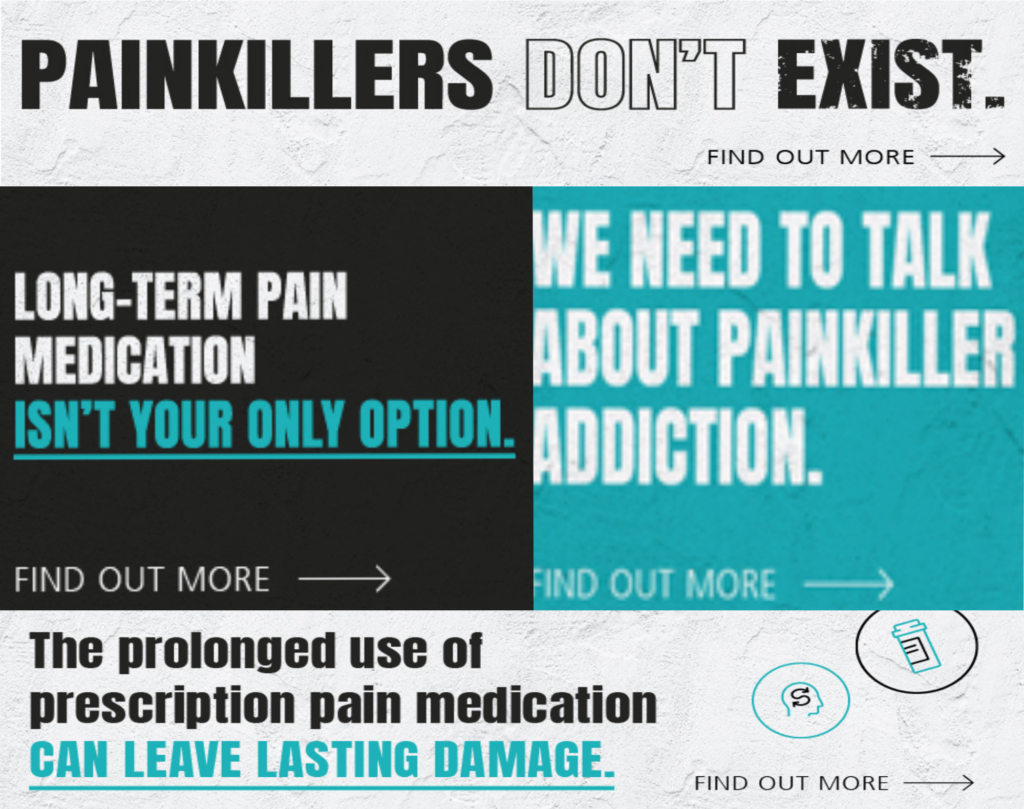
Painkillersdontexist.com/Shutterstock.com
Historically, the North East and North Cumbria Integrated Care Board (ICB) region has been the highest prescribing area in England for opioid medicines per patient.
Since 2016, when the risks of opioids in chronic pain started to become more widely recognised (for example, as per Opioids Aware), we have been carrying out work across the region to tackle this issue. Our work has focused on both changing the behaviour of both prescribers and patients when managing chronic pain and highlighting the risks of pain medicines.
One part of this work was the #painkillersdontexist website and campaign, which was developed in Sunderland and launched in October 2019.
The campaign initially targeted messaging for patients and prescribers about the risks of pain medicines, including addiction, using hard-hitting statistics, images and patient stories.
Behavioural change theory based on the ‘COM-B’ model was utilised throughout the design of the campaign. This model cites capability (C), opportunity (O) and motivation (M) as three primary factors capable of influencing a change in behaviour (B); we wanted to ensure that both patients and prescribers had the knowledge and skills, physical and social opportunity and desire or motivation to change their behaviour around pain medication use. The main calls to action were designed to encourage discussions about pain medication and their risks in primary care consultations, especially for patients on high-dose opioids or those suffering from addiction or other side effects.
Examples of messages can be seen below:

Painkillersdontexist.com (© 2023 North East and North Cumbria ICB)
Since the initial launch, the campaign has also been rolled out in County Durham and has been used continually over the past few years as one of a number of interventions to reduce inappropriate overprescribing in chronic pain in both localities.
This has had a significant impact on pain medication prescribing in the North East and North Cumbria. We have now emerged after a peak in prescribing and are starting to see rates of prescribing reduce, in particular those prescribed longer term opioids.
We have received positive feedback from both clinicians and patients about the role of the campaign in raising awareness of the issues, although the hard-hitting branding and focus on high strength opioids were identified as topics that could be adapted to encourage wider engagement with this agenda.
The campaign has always prided itself on the strength of being reactive to feedback; we respond to significant public concerns via social media and identify areas for improvement through insight work and data review.
For example, we know that a lot of prescribing in the North East and Cumbria ICB region is for lower strength and weaker opioids and gabapentinoids, and that many of these patients may have been started on them as an acute medicine without being given appropriate reviews. We have therefore decided on a change in branding for the campaign to reflect this.
The campaign now focuses on patients who have been prescribed ‘pain medication’ for between three months and six months and are therefore moving beyond acute and into chronic use, increasing their risk of dependence and addiction. We are also in the planning phase to roll out the campaign across the ICB footprint, which will allow this great resource to eventually reach over 3.1 million people.
The website aims to encourage increased understanding of the management of pain, especially non-pharmacological methods. It contains a range of resources to support patients and their families, as well as professionals, in this challenging area.

PAINKILLERSDONTEXIST.COM (© 2023 NORTH EAST AND NORTH CUMBRIA ICB)
This campaign is just one of the many ways in which we are working to minimise harm to patients from these medicines and to ensure chronic pain is managed appropriately in the North East and North Cumbria.
Rachel Berry is an advanced medicines optimisation pharmacist based in County Durham

